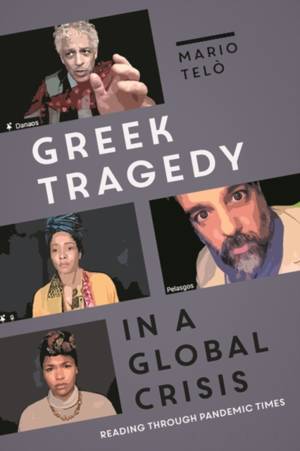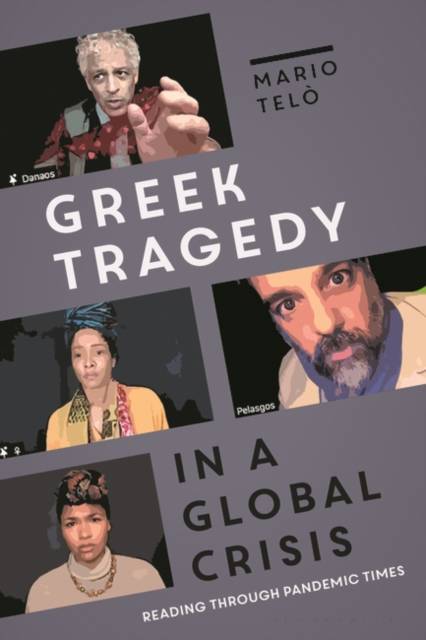
Bedankt voor het vertrouwen het afgelopen jaar! Om jou te bedanken bieden we GRATIS verzending (in België) aan op alles gedurende de hele maand januari.
- Afhalen na 1 uur in een winkel met voorraad
- In januari gratis thuislevering in België
- Ruim aanbod met 7 miljoen producten
Bedankt voor het vertrouwen het afgelopen jaar! Om jou te bedanken bieden we GRATIS verzending (in België) aan op alles gedurende de hele maand januari.
- Afhalen na 1 uur in een winkel met voorraad
- In januari gratis thuislevering in België
- Ruim aanbod met 7 miljoen producten
Zoeken
€ 152,95
+ 305 punten
Uitvoering
Omschrijving
What does it mean to read Greek tragedy in a pandemic, a global crisis? How can Greek tragedy address urgent contemporary troubles? One of the outstanding and most widely read theorists in the discipline, Mario Telò, brings together a deep understanding of Greek tragedy and its most famous icons with contemporary times. In close readings of plays such as Alcestis, Antigone, Bacchae, Hecuba, Oedipus the King, Prometheus Bound, and Trojan Women, our experience is precariously refracted back in the formal worlds of plays named after and, to an extent, epitomized by tragic characters.
Structured around four thematic clusters - Air Time Faces, Communities, Ruins, and Insurrections - this book presents timely interventions in critical theory and in the debates that matter to us as disaster becomes routine in the time-out-of-joint of a (post-)pandemic world. Violently encompassing all pre-existing and future crises (relational, political and ecological), the pandemic coincides with the queer unhistoricism of tragedy, and its collapsing of present, past, and future readerships.
Structured around four thematic clusters - Air Time Faces, Communities, Ruins, and Insurrections - this book presents timely interventions in critical theory and in the debates that matter to us as disaster becomes routine in the time-out-of-joint of a (post-)pandemic world. Violently encompassing all pre-existing and future crises (relational, political and ecological), the pandemic coincides with the queer unhistoricism of tragedy, and its collapsing of present, past, and future readerships.
Specificaties
Betrokkenen
- Auteur(s):
- Uitgeverij:
Inhoud
- Aantal bladzijden:
- 296
- Taal:
- Engels
Eigenschappen
- Productcode (EAN):
- 9781350348110
- Verschijningsdatum:
- 15/06/2023
- Uitvoering:
- Hardcover
- Formaat:
- Genaaid
- Afmetingen:
- 156 mm x 234 mm
- Gewicht:
- 589 g

Alleen bij Standaard Boekhandel
+ 305 punten op je klantenkaart van Standaard Boekhandel
Beoordelingen
We publiceren alleen reviews die voldoen aan de voorwaarden voor reviews. Bekijk onze voorwaarden voor reviews.









